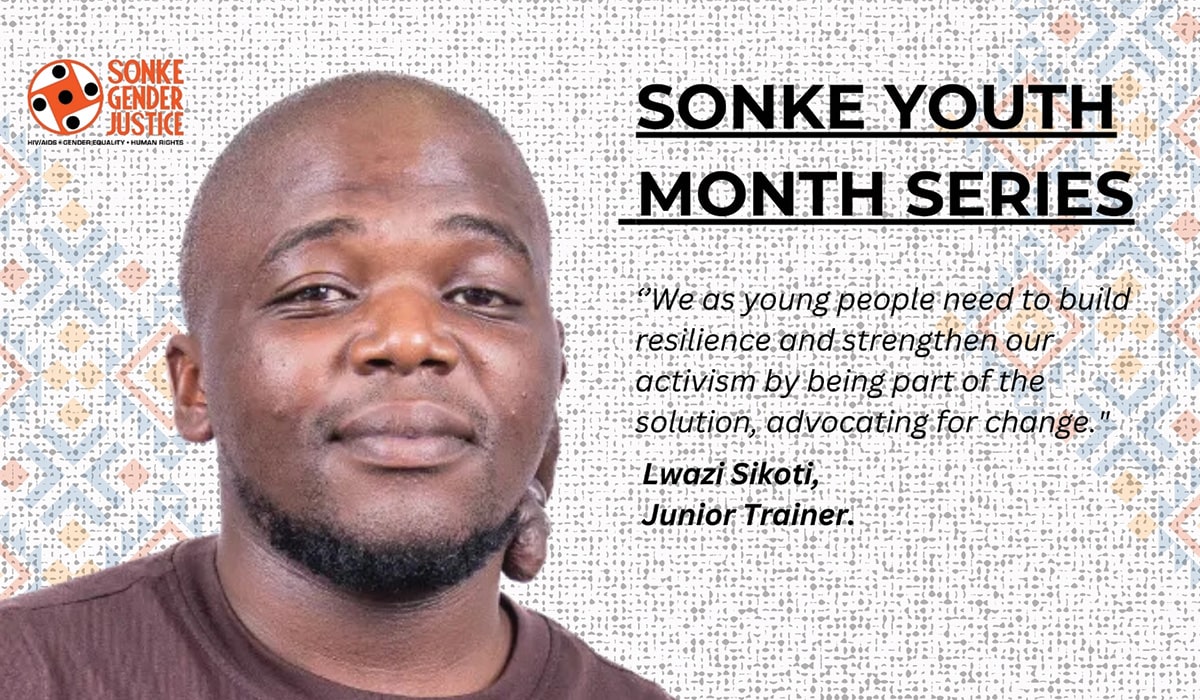Lwazi Sikoti joined Sonke as a Community Mobiliser and HIV Counsellor in 2017. Sikoti is an ambitious young person who is self-driven, who does his work with pride and compassion, and believes hard work and dedication is what has gotten him to achieve some of his dreams. He believes that his contribution at Sonke brings about positive change in society.
Sikoti describes the Month of June as significant as it is a remembrance of the Soweto Uprising, one of the key moments in South African history. June reminds him of the thousands of students that sacrificed their lives on 16 June 1976 to march against Bantu education so that the youth of this generation can have the privilege of being taught in their own mother tongues.
South Africa continues to struggle with one of the highest rates of gender-based violence in the world. This pervasive problem not only affects the physical and mental well-being of individuals but also perpetuates a culture of fear and inequality within the country. To combat this deeply rooted issue, the youth needs to take a stand and actively work towards creating a safer and more equitable society for all.
Sikoti, a passionate advocate for gender equality, believes that young people have a crucial role to play in addressing gender-based violence. With their fresh perspectives, energy, and determination, the youth have the power to challenge harmful societal norms and advocate for change. By raising awareness, promoting education, and supporting victims, young people can help shift attitudes and behaviours that perpetuate violence against women and girls.
“Young people need to be empowered to fully understand the forms and impacts of GBV so that they may actively participate in the creation of GBV educational platforms. We as young people need to build resilience and strengthen our activism by being part of the solution advocating for change”, he states.
Lwazi supports the implementation of one of Sonke’s projects, Generation Gender. According to the baseline survey for Generation Gender programme, young people in South Africa feel unseen and unheard since they are not involved in decision-making processes related to gender equality and gender-based violence. It demonstrated the need for adolescents to gain a better awareness of gender transformative approaches for gender equality and tackling GBV to engage decision-makers and hold them responsible. The study also revealed a disparity between the law on paper and the reality of women’s and girls’ experiences on the ground, and that, while norms and perceptions of gender equality have shifted, much more work is still to be done.
“In most decision-making spaces young people’s voice and opinions are excluded as it is believed they don’t matter”, Sikoti.
Lwazi noted that since working for Sonke Gender Justice, he has been capacitated on issues of Gender based violence, HIV/AIDS, Meaningful Inclusive Youth Participation, Sexual Reproductive Health Rights, Integrated Development Plan and Access to Justice content, and that has grown him as a young person and activist to be accountable and resilient in advocating for those who can’t advocate for themselves.
He has learned to be open to learn new things and share knowledge to empower others within the space and form collaborations with another activist to strengthen the advocacy.
“I have been given opportunities of exposure in meaningfully participating in decision making spaces. Even from this instance I’m playing a very pivotal role within the organization by forming part of the Global Youth Committee on Advocacy Strategies”, Sikoti concludes.








